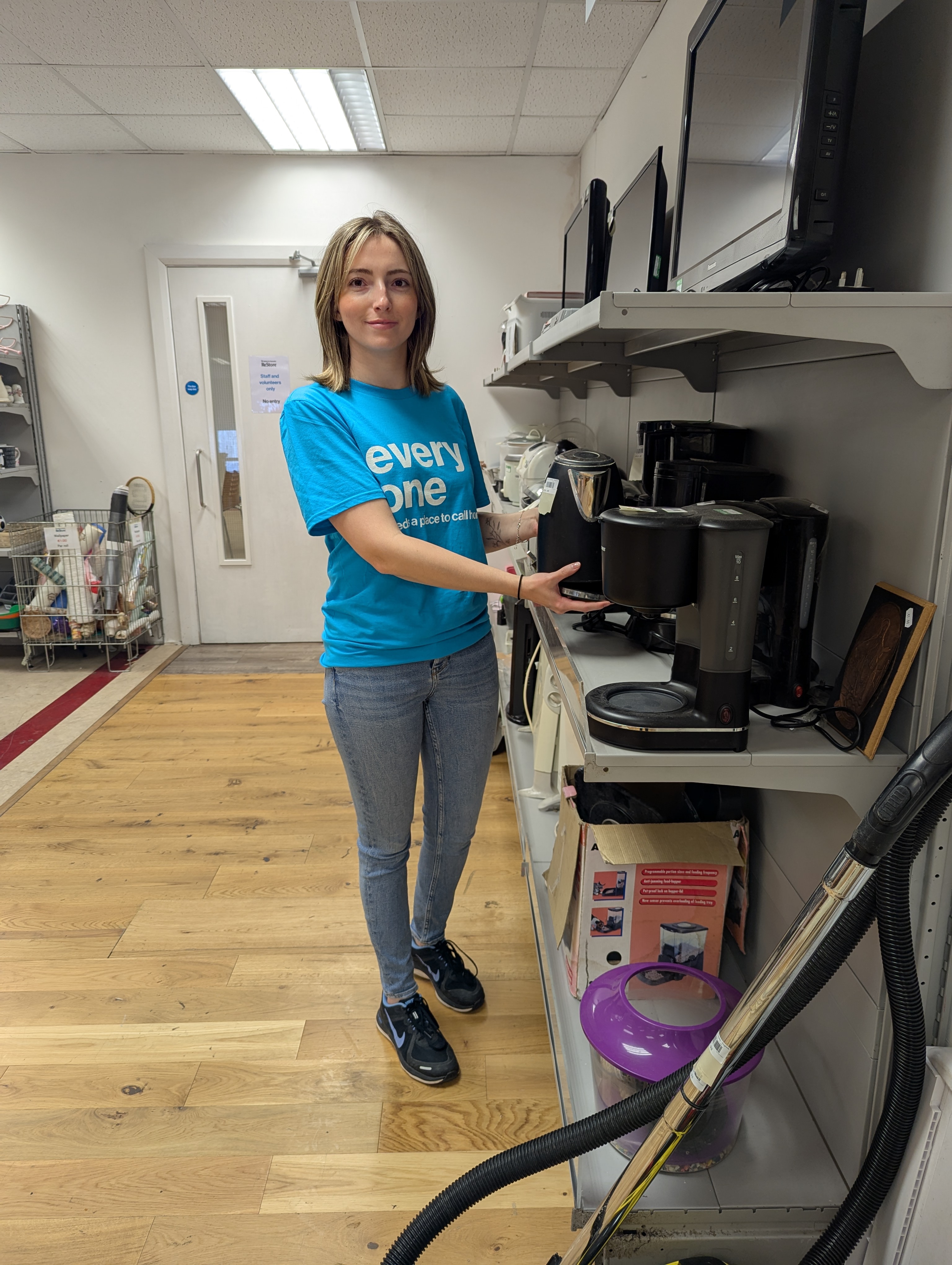We recently welcomed Lucie to ReStore Drogheda, where she will be volunteering through the European Solidarity Corps programme. Read about her experience below.

I sat down with Lucie Duriaud-Janvier, one of our volunteers from the European Solidarity Corps (ESC), who has come all the way from Jura, France. Back in June, I supported a schools event alongside Lucie before grabbing time at the end of the day to interview her.
The European Solidarity Corps is a volunteering programme funded by the European Union for young Europeans ranging in ages 18 to 30. The programme covers the costs of travel, accommodation, and food while volunteering abroad. Prospective volunteers go through an extensive application and interview process before they're granted a placement that can last between two months to a year. ESC volunteers with ReStore Drogheda are placed for a minimum of six months, but the placement can be extended to a year.
Lucie and I first met when I travelled down to ReStore Drogheda to film content for social media. At the end of the day, I realised I forgot to ask for her number to keep in touch, but thankfully Eva, the other ESC volunteer in ReStore Drogheda, was able to connect us. At the time of this interview, Lucie had been in Ireland for approximately two to three weeks so I paid special attention to her goals and motivations for coming to Habitat for Humanity and Ireland as a whole.
Lucie, like many ESC volunteers, came to the Ireland hoping to improve her English. She always wanted to be proficient in English because of its prominence in her studies of biology and explained how English could open doors to careers in science. At the moment, Lucie is at the crossroads of pursuing further studies or entering the workforce. She decided to take this opportunity to apply to the ESC programme.
Lucie knew that to improve her English, she would need to live in a country that spoke primarily English. Originally, she wanted a placement in the United States, but there are very limited opportunities for young adults over the age of 25 to travel as part of a programme. Then she heard of the ESC programme and knew she had to apply. Though the programme was limited to within Europe, "there will be something new to discover, since every country has its differences." Lucie told me that she was looking to immerse herself in a new culture, meet new people, learn more about herself, develop soft skills, and figure out what profession she'd like to go into.
I brought up Habitat for Humanity and what brought Lucie to the organisation. Her response was that she recognises the universal need for housing and has seen the widespread struggle with the cost-of-living crisis across Europe, regardless of economic background. Habitat's mission resonated with her to the extent that it brought her to volunteer at ReStore Drogheda.
Here, the topic shifted to Lucie's adjustment to life in Ireland. In terms of speaking English, she finds it difficult to express herself in the moment and the speed of which the locals speak at, as well as the Irish accent, is overwhelming. She even admits that sometimes her brain cannot keep up with the level of focus needed to understand English. Lucie has only been in Ireland for two to three weeks, so she hopes things will get easier as time passes.
Her experience in ReStore however has been positive. Most days, Lucie is working at the till, organising stock, merchandising in-store and she welcomes the challenge of interacting with customers as the best way to improve her English. When she isn't at the front, she's either moving furniture, putting it together, or taking it apart. As for work outside the ReStore, Lucie's gone on lots of donation collections in the ReStore van and is set to participate in House to Home the day after our interview.
As we wrap up, I ask about her plans for the future, since she's only at the beginning of her programme experience. Lucie immediately responds with her wish to travel across Ireland. She'd also like to travel around Europe, but Ireland is the first priority in order to take advantage of this six-month opportunity!
Lastly, Lucie asks if she can send a message to anyone in a position similar to hers prior to the ESC programme. And it's to take the first step in trying something new, especially if it's as scary as traveling to a new country. "Turn off the brain," she urges, because if she didn't, she wouldn't be where she is now.